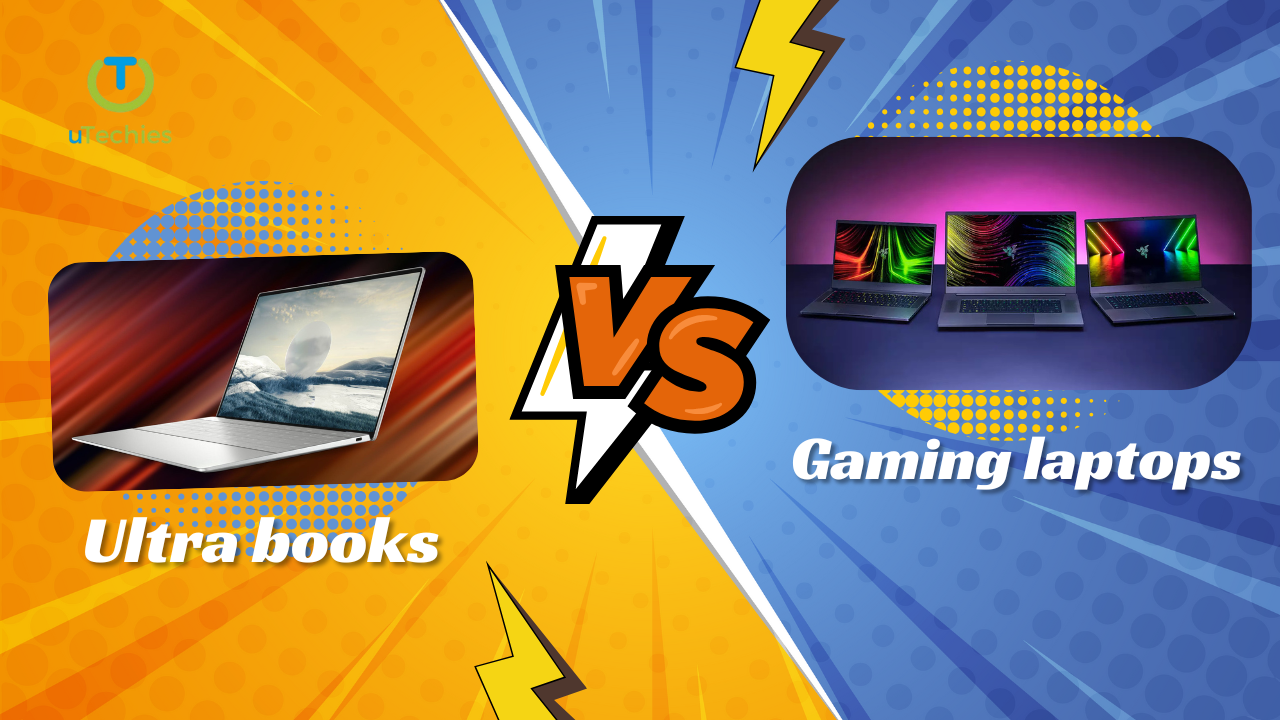Selecting the perfect laptop can be overwhelming, given the vast array of options available today. Among the most debated choices are ultrabooks and gaming laptops, each designed with distinct purposes in mind. Whether you prioritize performance, portability, or battery life, understanding their key differences will help you make a well-informed decision. This blog breaks down these aspects to guide you toward the ideal laptop for your lifestyle.
Performance: The Power Dilemma
Gaming Laptops: Unleashing Top-Tier Power
Gaming laptops are built to deliver unmatched performance, especially for resource-intensive tasks. These machines typically house high-performance processors (such as Intel Core i7 or AMD Ryzen 7), dedicated GPUs (like NVIDIA’s RTX series), and substantial RAM, making them ideal for gaming, video editing, and 3D rendering.
- Advantages:
- Outstanding graphics and processing capabilities.
- Often customizable for even better performance.
- Drawbacks:
- Heavier and bulkier compared to other laptops.
- Limited battery life, usually ranging from 2 to 5 hours.
Ultrabooks: Prioritizing Efficiency
Ultrabooks, on the other hand, focus on energy efficiency and streamlined performance. With low-power processors (e.g., Intel U-series) and integrated graphics, these laptops excel in everyday tasks like document editing, web browsing, and light content creation.
- Advantages:
- Sleek and lightweight for easy portability.
- Quick startup times and smooth performance for routine tasks.
- Drawbacks:
- Struggles with high-performance applications such as AAA games or advanced design software.
Portability: Lightweight vs. Heavy-Duty
Ultrabooks: A Traveler’s Best Friend
Designed with mobility in mind, ultrabooks typically weigh around 2 to 3 pounds and feature a slim profile of under 15mm. This makes them perfect for students and professionals constantly on the move.
- Advantages:
- Extremely portable and ideal for travel.
- Long-lasting battery life, usually between 8 to 12 hours.
- Drawbacks:
- Smaller screen size, which may not suit prolonged usage.
Gaming Laptops: Portability with a Trade-Off
Although modern gaming laptops are lighter than their predecessors, they still lean toward being bulkier due to their advanced hardware. These laptops often weigh between 4 and 7 pounds.
- Advantages:
- Large screens enhance gaming and multimedia experiences.
- Well-designed cooling systems and more tactile keyboards.
- Drawbacks:
- Heavier and less convenient to carry around frequently.
Battery Life: Longevity vs. Performance
Battery life can significantly influence a laptop’s usability:
- Ultrabooks shine in this department, offering up to 12 hours of operation on a single charge thanks to their energy-efficient components.
- Gaming Laptops, with their power-hungry hardware, often deliver only 2 to 5 hours, especially when running demanding tasks or games.
Making Your Choice
Deciding between an ultrabook and a gaming laptop ultimately boils down to your individual requirements:
- Consider an Ultrabook if:
- Portability and battery endurance are your top priorities.
- Your primary activities involve everyday tasks like office work, streaming, or light editing.
- Opt for a Gaming Laptop if:
- High performance is essential for gaming, graphic design, or video editing.
- You’re okay with sacrificing portability for cutting-edge hardware.
Conclusion
The choice between an ultrabook and a gaming laptop depends on what you value most in a device. If you need a lightweight and long-lasting laptop for casual use, an ultrabook is your best bet. Conversely, if you require a powerhouse for demanding tasks, a gaming laptop will serve you well. By carefully assessing your needs, you can invest in a laptop that aligns with your lifestyle and enhances your daily productivity or gaming sessions.






